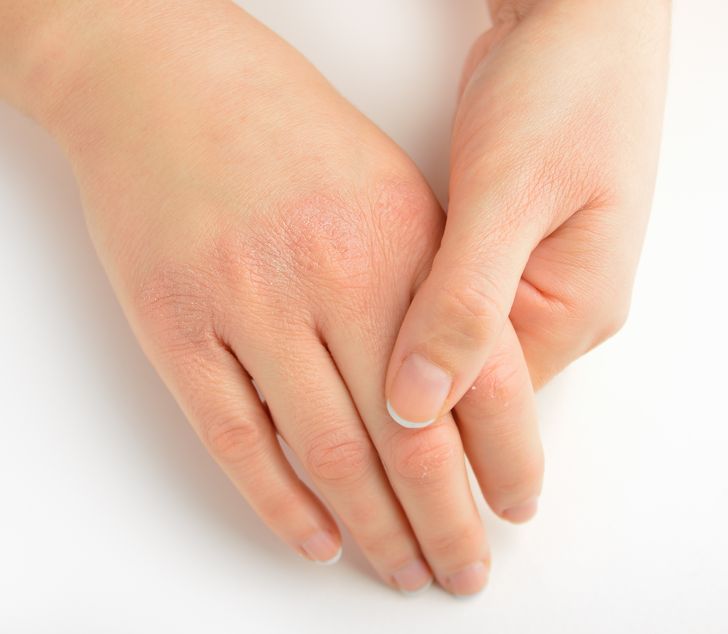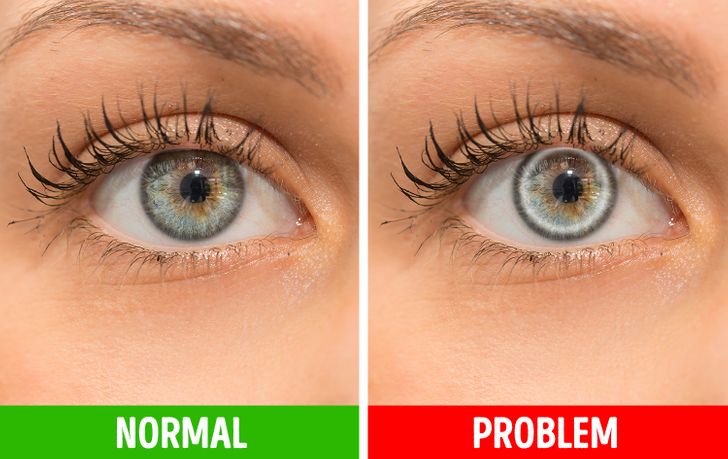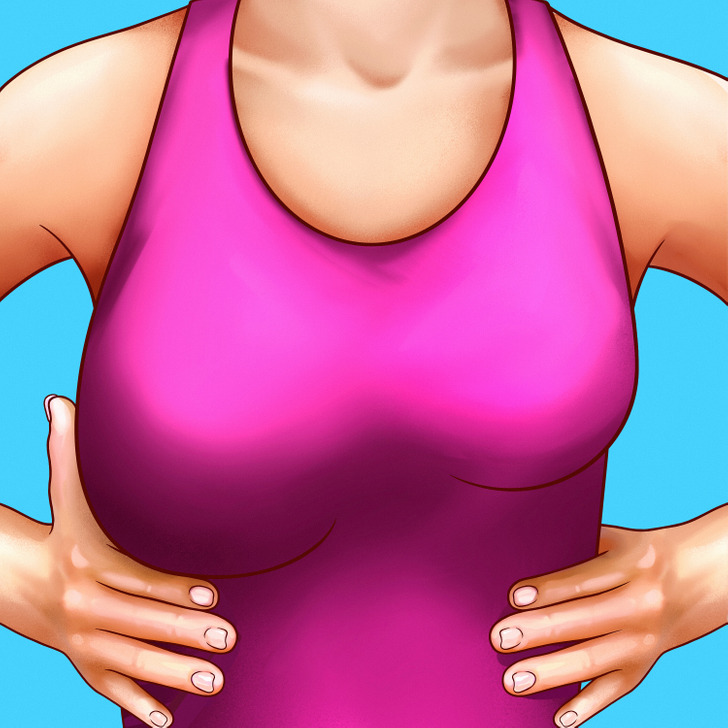1. Unexplained Weight Loss.
If you’re losing weight but you know you’re not on a diet, or doing anything specifically to shed the pounds, it’s time to set an appointment with your doctor, Losing 5% of your body weight within a month, or 10% of your weight within six to 12 months is considered excessive weight loss. An overactive thyroid, depression, liver disease or cancer can cause you to lose weight rapidly.

2. A fever that won’t go away.
Fever usually means your body is fighting off an infection. A persistent (having it for more than a week) low grade (38oC or 100.4oF), fever could signal conditions ranging from a urinary tract infection, to tuberculosis, or to something more serious such as lymphoma.
3. Shortness of breath.
Being short of breath after exercise, or because you have a stuffy nose, is considered normal. However, if you seem to be relaxed and you find yourself struggling for air, it could be a cause for concern. If you find yourself wheezing, making a high-pitched sound like a whistle when you breathe, or the breathlessness worsens when you recline, it’s time to see the doctor. Chronic obstructive pulmonary disease, chronic bronchitis, asthma, heart problems, anxiety, panic attacks, a blood clot in the lung (pulmonary embolism), pulmonary fibrosis and pulmonary hypertension are some of the culprits for this condition.

4. Unexplained changes in bowel movements.
The key thing to look out for here is a sudden change. For example, if you are suffering from constipation, but have a long history of the condition, you don’t have to rush to the emergency room just yet. However, if the condition comes with vomiting, nausea or abdominal pain, you should seek medical attention. Furthermore, diarrhea for more than a few days, blood in your stool or stool that is black or tarry-colored, are signs that you need to consult your doctor. Health problems such as infectious or bacterial gastroenteritis, food poisoning, Crohn’s disease, colitis, irritable bowel syndrome and color cancer could be the root of your symptoms.

5. Changes in mental state.
If you suddenly feel disoriented or confused, or if you suddenly experience hallucinations or aggressive behavior, you need to check with your physician. You could be a diabetic with low blood sugar. You could also be suffering from an infection, head injury, stroke, dementia or psychotic breakdown, or having an allergic reaction to a new medication.
6. New or severe headaches (especially in those over age 50).
A painful headache that seems to come out of nowhere could mean you’re having a stroke. Pay special attention if your headache is accompanied by fever, stiff neck, rash, mental confusions, seizures, vision changes, speaking difficulties, scalp tenderness or pain with chewing. You could have arteritis (blood vessel inflammation), meningitis, brain tumor, aneurysm, or bleeding in the brain after head trauma.

7. Short-term loss of vision, speech or movement control.
Seek immediate medical help if you suffer any of the following:
Sudden weakness or numbness of the face, arm or leg on one side of your bodySudden dimness, blurring or loss of visionLoss of speech, or trouble talking or understanding speechA thunderclap headache (a severe headache that strikes like a clap of thunder)Sudden dizziness, unsteadiness or a fall These symptoms point to very serious conditions such as a transient ischemic attack or a stroke. Getting to the doctor as soon as possible could save your life. There is a three-hour window that will make you responsive to possible treatment with clot-dissolving medication.
8. Flashes of light.
If you’re suddenly seeing flashes of light that look like fireworks or lightning streaks, you need to get yourself to the emergency room. These symptoms point to eye conditions that could lead to vision loss or blindness. You should also check with an ophthalmologist if you observe an increase in floaters (dark specks that seem to move across your field of vision), a sudden “curtain” over your eye, or a sense that you’re seeing the world through a red filter.
9. Feeling full after eating very little.
If you haven’t eaten very much, but feel full, consult with your doctor. You should also be concerned if you have nausea or vomiting that lasts more than a week. Possible conditions that could explain these symptoms are gastro-intestinal disorders, pancreatic cancer, stomach cancer and ovarian cancer.

10. Hot, red or swollen joints.
Some swelling and discomfort in the joints is expected as we age. However, you should get checked out if the symptoms come in a triple combo – the joint is hot, red and swollen. You could be suffering from a bacterial infection and immediate medical care is necessary to save the joint function and to prevent the infection from spreading to other parts of your body. Other causes include gout and rheumatoid arthritis.Do you know when a twitch or a pain should be cause for worry? Knowing when to pay attention to your body’s signals can go a long way in helping you get appropriate treatment as soon as possible.According to the Mayo Clinic, the following are 10 symptoms you shouldn’t ignore:
1. A crawling, creeping sensation in your legs.

If you experience strange sensations in your legs and feet, such as crawling, creeping, or an urge to move, it might be a sign of restless leg syndrome. This chronic condition often causes discomfort at night when you are trying to sleep.
2. Changes in handwriting, loss of smell, and vivid dreams.

Most people are familiar with Parkinson’s disease, but fewer know its symptoms. Doctors warn that tremors, slowed movement, disrupted sleep with nightmares, and changes in speech and writing can all be indicators of the disease.
3. Skin thickening.

Don’t overlook or downplay skin issues. Thick, itchy skin can indicate various internal problems, such as hormonal disorders, eczema, or allergies. Consider having blood tests if this issue continues or worsens.
4. Excessive sleeping.

This condition is known as hypersomnia, and doctors say it can arise from factors that show it’s more than just tiredness. Certain autoimmune diseases can trigger an overwhelming urge to sleep in any setting. Additionally, consuming alcohol before bedtime can also lead to this effect.
5. Alterations in eye color.

Doctors have noted that a white or grey ring around the cornea of the eyes in individuals under 45 may indicate high cholesterol. The ring itself is harmless and only affects appearance.
6. Anger and aggression.

Outbursts of anger may not always stem from your personality. Some researchers suggest they could be linked to depression. They argue that depression isn’t solely characterized by low energy or sadness; it can also manifest as aggressive behavior.
7. Changes to the breast.

If you observe changes in your breasts such as lumps, increased firmness, dimpling, redness, scaliness, or itching, promptly contact your doctor. Early detection of these symptoms can significantly enhance the likelihood of a positive outcome.
8. Cravings for salt.

Enjoying salty food is fine, but if you find yourself unable to control the craving and it becomes the only thing you desire, it’s time to investigate why. According to medical experts, This could indicate iron deficiency, anemia, dehydration, or premenstrual syndrome.
9. Constant thirst.

Feeling thirsty all the time isn’t normal, experts say. Sometimes, it may be related to your diet, so check if you’re consuming too many spicy or salty foods. Persistent thirst could also indicate diabetes or pregnancy.
10. Forgetfulness, fatigue, and a low libido.

Sometimes, this condition is mistaken for depression because it seems like you are so exhausted and frustrated that you can’t even remember things. Doctors advise not to overlook such symptoms, as they could indicate a problem with thyroid hormone levels in your body. You might also experience weight gain and a feeling of coldness.




